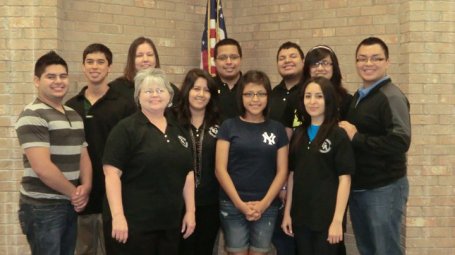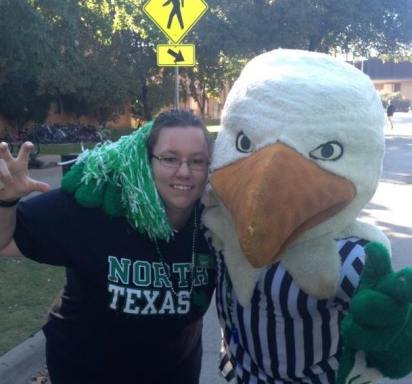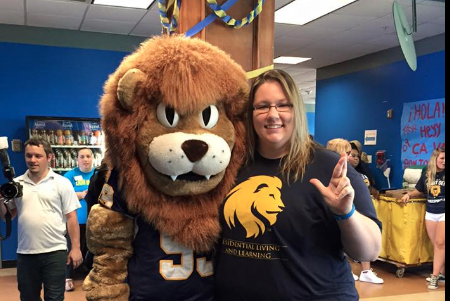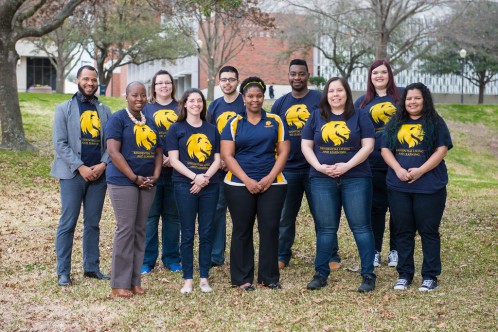
When my co-worker told me my last semester was going to be tough, I think I brushed it off, figuring I could handle anything and everything that came my way. Now, I sit here, nervously laughing to myself as I fill out another application or accept an offer to interview at The Placement Exchange (TPE), wondering if I’m taking on too many interviews. I also find myself wondering which of these interviews will take me all the way to accepting my first full time Student Affairs position.. I stare at my next grad assignment wondering if I can really allow myself to get away with getting a B in the course. I want to excel in my course work but I really want to devote my time and energy to finding a job because graduation is in about two months. Nothing can truly prepare you for the weight of the Student Affairs Job Search until you’re truly deep in the trenches with assignments and papers to finish.
For months, I have prepared. I read blogs about Student Affairs job search, attended a few workshops my grad program hosted, listened to webinars, searched for the best resume template, asked professionals I knew and didn’t know to edit to my resume, and searched the OshKosh Placement Exchange (OPE), TPE, and HigherEdJobs website routinely every day. After the OPE experience, accepting a few second round interviews, and my first on campus invite, I’ve realized a few things.
1. Sometimes, over-preparing is not healthy.
I know this is probably the craziest thing I could possibly say. And, this is the disclaimer, everyone is different. While good advice is ALWAYS good advice, it can make you feel stressed! Prior to OPE, I printed the job description, 20 copies of my resume, and wrote down possible responses to questions I thought would be asked. I thought I would benefit from being overly prepared but I only realized there was a few things I needed.
The first thing I needed was my University Fact Sheet with the university and department’s mission, a few reasons I wanted to work there, and my questions to ask the interviewers. This is important especially when you have multiple interviews. The next most important thing was letting my resume and my experience do the talking for me. The final thing that I needed which truly is most important: Myself and my experiences. I quickly realized as I was asked questions that I had all the experience and if I didn’t, I could flip it to show potential for learning and growth. Interviews are tricky but trying to prepare for what I think will be asked was not healthy. It only made me stressed, especially when I thought I would be asked a specific question and I wasn’t.
2. Be prepared to tell your story.
I think as Student Affairs grads and professionals, we get asked all the time “What is your story?” We are told to keep a 30 second elevator speech in our back pocket when we all know our story is not some 30 second elevator speech. Our story is our passion and why we are doing what we do. Be prepared for your story to go from 1-2 minutes to 5 minutes. At one point in an interview, I said these exact words “This gets longer and longer each time I respond to this question.” However, this is the time to shine, to let your passion come through, let them see the animated you. All questions are important but the “Tell me about yourself” question definitely sets the tone for the interview.
3. Relax and enjoy the moment.
I can’t recall anyone telling me this but as I was reflecting, getting ready to fill out another application, the job search can be fun. This is really and truly the time to shine and boost about yourself. (For some this is hard!) It’s the only time in your career that you have the opportunity. Relax a little and don’t stress about reaching out to every single schools. When you’re going through placement exchanges like OPE and TPE, it is possible to sit back and let schools come to you. Granted, I put in my share of seeking schools but some of the ones that I interviewed with at OPE, they reached out to me. It was easy to fill up my schedule. It’s okay to get excited each time a university emails you saying they are interested in you. Celebrate the interviews, the rejections, and the triumphs of getting that second interview, and the on campus invite. Share the joy when a big named school like Pennsylvania State reaches out to you or extends an invite to schedule an interview time. Celebrate the small schools that reach out to you! One of these jobs could be your fit so celebrate each offer. Just…. relax and enjoy the moment!
4. Find a healthy balance between school, search, and work.
This is something I am still learning and trying to figure out. Into week seven of classes and balancing the job search and grad assistantship is tough work.Especially when the second interviews and on campus visits come. I’ve figured out it’s important that I tell my professors, even if I don’t see them at all, what I have going on. I bombed a quiz, and for being a Master’s level student, felt bad about it. However, I told my professor that I was leaving for OPE and had to get it taken quickly. She seemed understanding. Remember to take lots of deep breaths and look at what can be accomplished in that moment. This is that moment it is okay to say no! It is okay to admit that you can’t take on extra responsibilities or attend an event. It is okay to say no.
These are just a few takeaways I’ve had while going through this process. Everyone is different. OPE really was a great experience and regardless of the outcome, I interviewed with some good schools and had decent conversations with professionals. I’m definitely going to relax a bit more ahead of TPE and just remember that I have all the experience I need to be successful. It’s just about conveying it and letting the interviewers see who I am.
Until next time,
Elizabeth R. Webb




